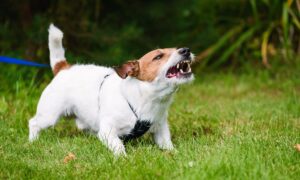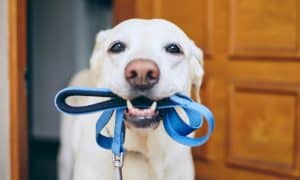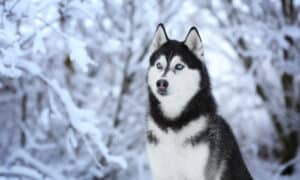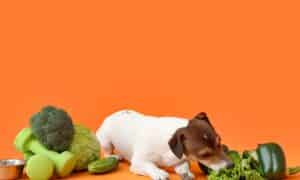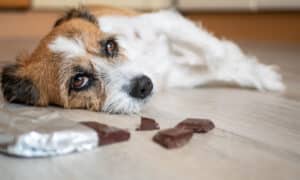“This post contains affiliate links, and I will be compensated if you make a purchase after clicking on my links.”
An essential part of puppy training is teaching it not to bite. If it grows up to be an adult dog with biting habits, it will pose danger to other people, especially children and other pets. There are some lessons that will ensure that the training remains permanent, and we’ll go over them in this article.
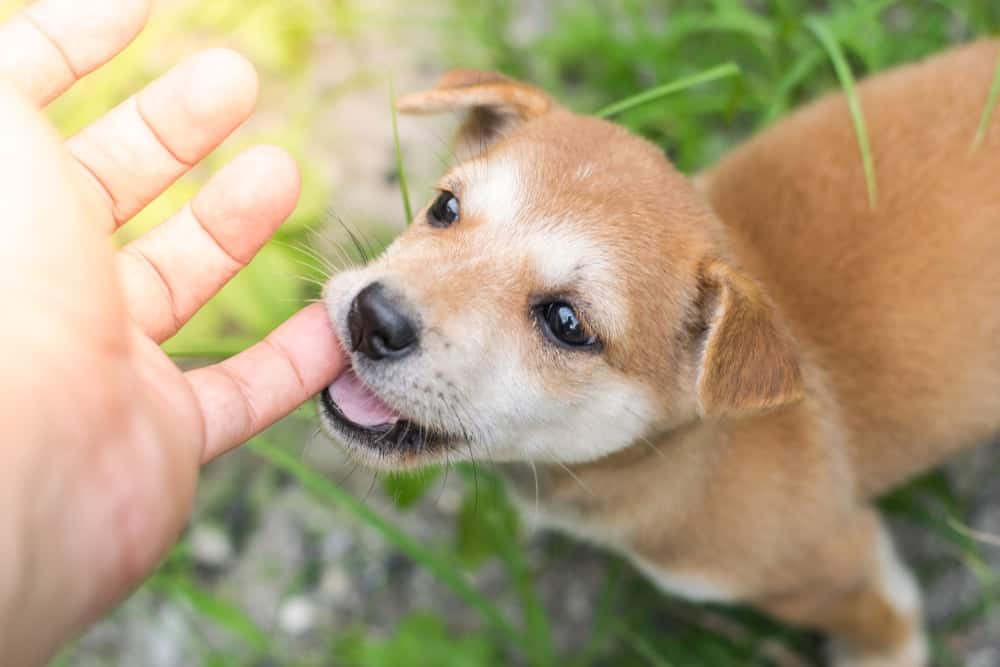
Lessons You Can Use in Training
If you want to protect your dog and any people it may bite, you’ll want to learn everything you can about training to prevent injuries. You can click here to find out more about recurrent questions concerning dog bite injuries.
Allowing Your Puppy to Bite and Allowing it to Understand its Limitations
Many people opt to stop their puppies from biting from the start, which is a bad idea. By allowing your puppy to experience how painful it is for you when they use their teeth to press against your skin, the puppy will learn not to bite even when in a stressful environment.
You can allow your puppy to indulge in behaviors such as gentle nibbling and mouthing. When you feel the pain, you can let out a scream to show the puppy that it was painful.
After the first lesson, your puppy knows how pain can be inflicted on the human skin through a bite, and the next lesson is no skin, no teeth. In this, your puppy should learn that no teeth should get into contact with a human being’s skin. You can apply the use of treats and only allow your puppy to get a treat after it stops mouthing or chewing.
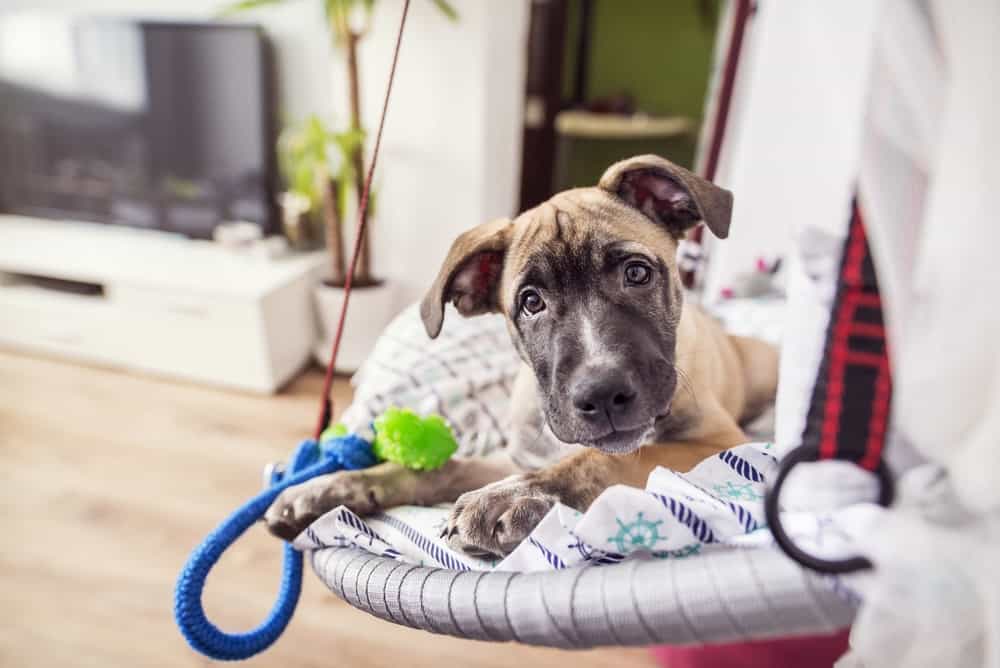
Apply the Use of Toys to Shift the Attention of Your Puppy
Puppies need to find out that chewing on the skin will inflict pain, whereas chewing on toys is fine. Though biting may seem bad, it’s a natural habit for puppies that should not be discouraged. You should provide plenty of toys for your puppy when teaching this lesson to ensure better understanding.
Giving Your Puppy a Break
A puppy has similar traits to children when we shift focus. It is best after teaching the puppy you allow it to play. This will ensure it is calm for the next training session.
Be calm and focused
Being mad at your puppy while training will not help, but it may result in bad memories that can remain permanent even when they become adults.
Understand the Herding Instinct
Herding behavior is naturally portrayed by some dog species, such as the German Shepherd, and that is why it is best for these behaviors to go away permanently. Use your nipping ankles to discourage the behavior. It would be best if you avoided shoes that will shift your puppy’s attention to your feet.
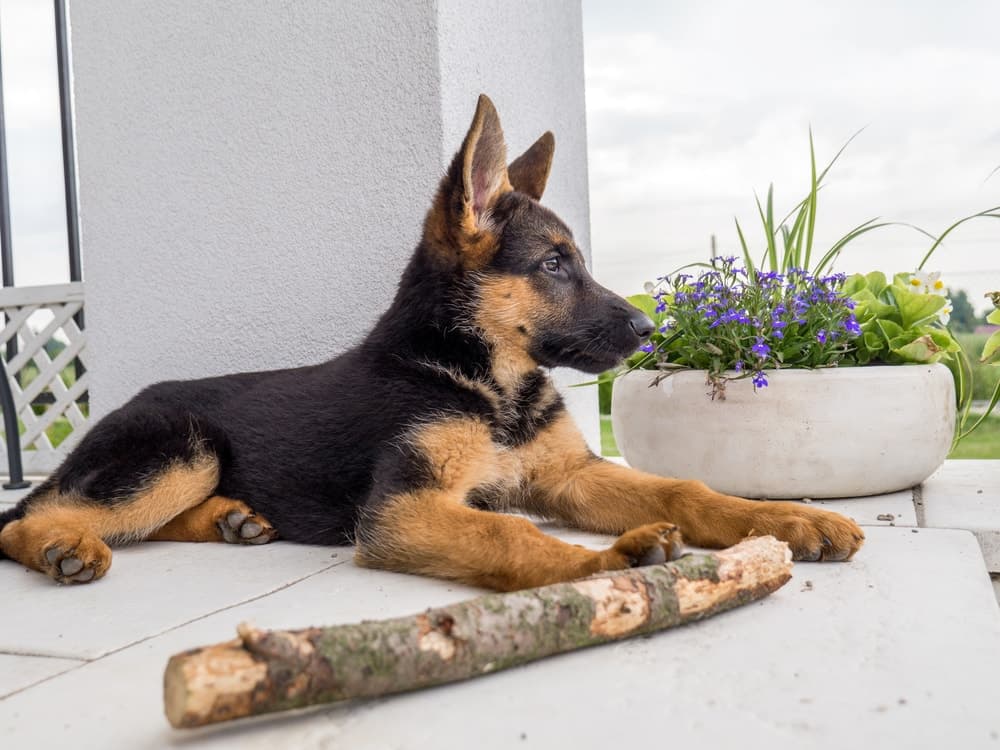
Teething in Puppies
Puppies start developing teeth at 10 or 12 weeks old. Biting is more common at this point as an aggressive response. However, biting can also happen when the puppy is playing with you. Not all biting is when a puppy is angry. When a puppy is in a new environment, it will react similarly due to the tension.
When You Can Expect Biting to Stop
A puppy starts developing teeth at three to four months old. At this point, they bite a lot because of teething. It might stop at seven months when all of the teeth have developed.
What Makes Your Puppy Bite A Lot?
Puppies tend to bite children and teenagers more than adults because they may give out confusing signals that may result in tension. However, there is no need to get rid of a puppy because of this behavior. You can train it, and you should, for the sake of the puppy, yourself, and the other people your puppy will encounter.
About the Author: Cheryl Roy
While she has a solid education in law, Cheryl Roy wanted more than a job as a lawyer. She knew that people needed information and a better understanding of everyday legal matters. She began writing articles and guidelines to educate individuals and businesses. Now, she is collaborating with blogs, magazines, and outlets, being proud that her knowledge and her writing talent are helping everyone every day.


